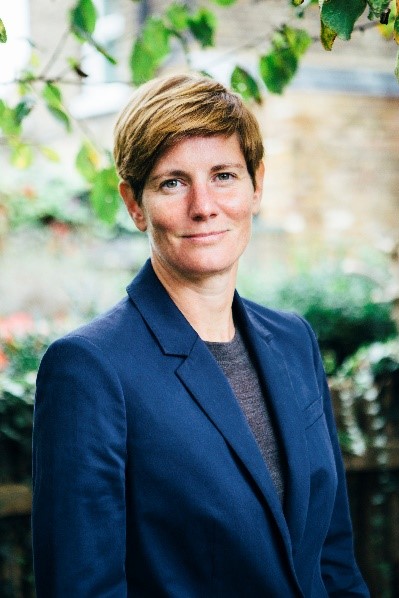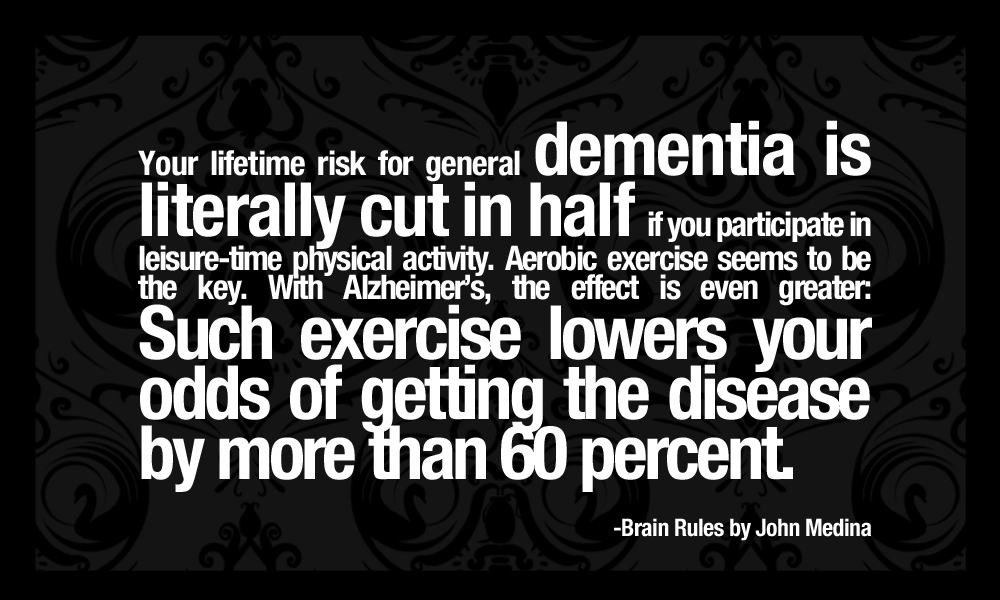“The potential benefits of physical activity to health are huge. If a medication existed that had a similar effect, it would be regarded as a ‘wonder drug’ or ‘miracle cure’”. Sir Liam Donaldson, former Chief Medical Officer
Exercise and physical activity has a profound effect on the brain, and is without a doubt essential to having a long and enjoyable healthspan. Whenever I talk about helping someone achieve longevity in life, I use the term healthspan rather than lifespan. The difference I think is crucial; your lifespan could be anything up to 100 years upwards, but surely living a life that is healthy is more important than living a life that is simply long? Who wants to live to 100 years if they are severely disabled and mentally ill. Healthspan is what matters.
Think of the brain as a muscle
The best way to promote brain health is to combine physical and mental exercise. This can be done separately or in the same exercise. So for example, a person might go for a run three times a week and also do a daily crossword to stay healthy. Alternatively, sports such as tennis, badminton, or most sports in fact, engage both the muscles of the body and the brain and help to maintain good coordination, agility and movement. You need to keep your brain fit and nourished in the same way you do your body, so it’s good to think of it as another muscle to be kept toned.

Exercise improves brain circulation
Despite the fact that the brain only accounts for about 2% of our body weight, it requires around 20% of or daily calorie intake (source: Siebert, Gessner, and Klasser, 1986). It’s a demanding engine. Exercise has the effect of feeding the brain by improving blood flow, and carrying oxygen and glucose to this vital organ, and then removing waste products as the deoxygenated blood leaves the brain. The improved blood flow also helps improve memory and attention span.
Helps to encourage neurogenesys
The supply of extra oxygen to a part of the brain called the hippocampus (responsible for learning and memory) helps to create new brain cells. This process is called neurogenesis, and these new cells survive even after you stop exercising. The hippocampus is especially receptive to new neuron growth after endurance exercise, which is further evidence to support the argument that the best type of regular exercise for most people is both endurance-based exercise as well as strength work.
Improves mood
Exercise encourages the production of neurotransmitters such as endorphins, dopamine and glutamate as well as generating serotonin, nicknamed the ‘feel-good’ hormone. All of these neurotransmitters help to improve our mood and make us feel good, which in turn can reduce feelings of anxiety and stress, and have a positive effect on depression.
Reduces risk of Alzheimer’s Disease
Improved brain function can reduce the risk of serious and crippling conditions such as Alzheimer’s and Parkinson’s disease, strokes and cognitive decline. Scientists now think there may be a link between Alzheimer’s disease and type 2 diabetes. A recent study published in the journal Neurology found that people with type 2 diabetes were more likely to develop the brain “tangles” commonly seen in people with Alzheimer’s disease.
Neuroplasticity
This relates to the brain’s ability to learn and grow, restructure, rebuild and reorganise.
Neuroplasticity can be affected by tasks which stretch the brain such as learning a new language, learning to write with your non-dominant hand or learning the alphabet backwards for instance. As early as our forties, our brains start to shrink, but there are things we can do to slow that decline and stay sharp. Around three hours a week of brisk walking can halt or sometimes reverse brain shrinkage (atrophy) and encourage neurogenesys.
Leanne Spencer is an entrepreneur, coach, TEDx Speaker, author of Remove the Guesswork, and Rise and Shine: Recover from Burnout and get back to your best and founder of Bodyshot Performance Limited. Bodyshot is a health and fitness consultancy that helps busy professionals get more energy by removing the guesswork around their health, fitness and nutrition. Visit http://www.bodyshotperformance.com for more information or connect with us on Facebook, Instagram and Twitter.
Originally published at medium.com


